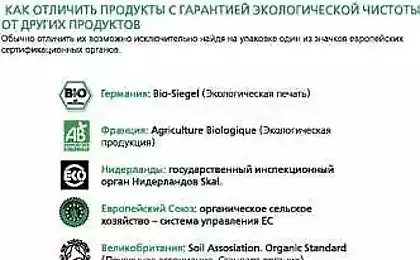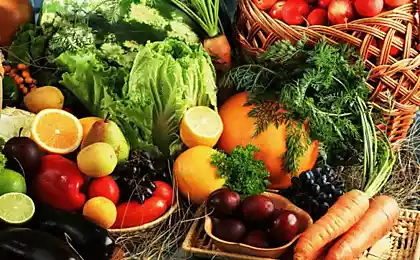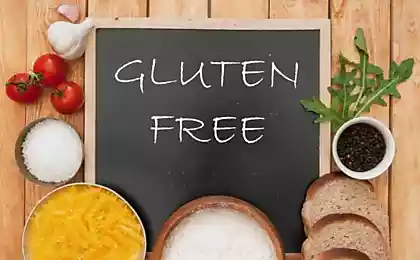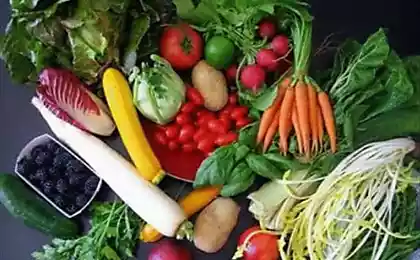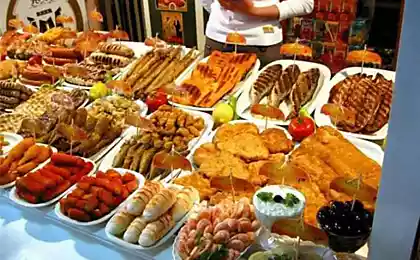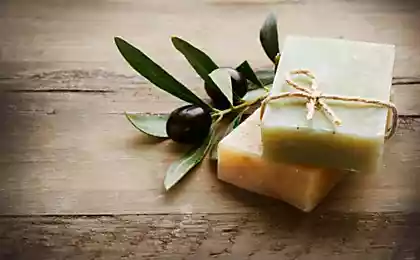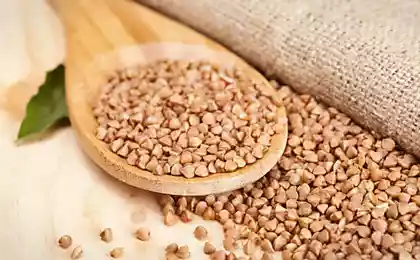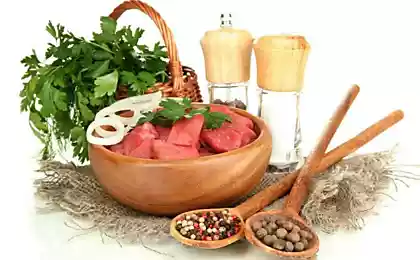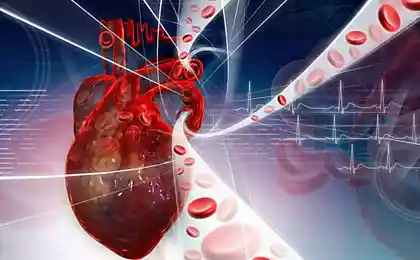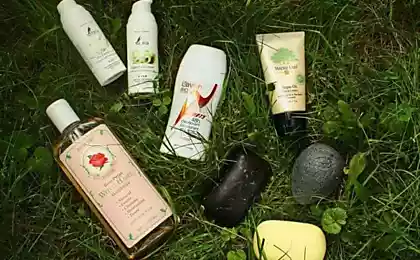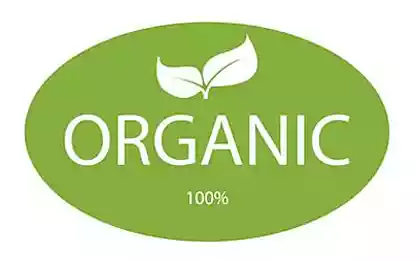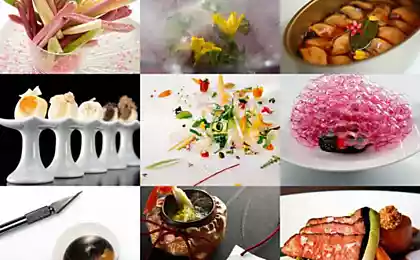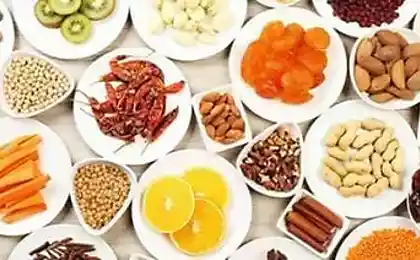486
Organic products
One of the tasks of the technological revolution that occurred during the twentieth century was to increase the number of foods and make them cheap. And that their quantity and quality are not dependent on the vagaries of nature. In the end we got a "rubber" tomatoes and broiler chickens. And then the pendulum swung in the other direction: appeared on the market of organic products grown and developed as people have done 2-3 centuries ago.
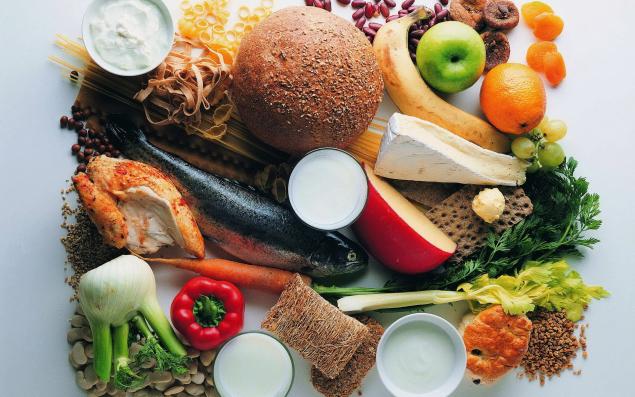
In the beginning organic products were considered all that has grown "naturally" — without sprays, fertilizers, animal feed, at the good old manure and sunlight. Do organically grown foods taste rich and vitamins and minerals contains much more.Another required characteristic of organic products, in addition to growing naturally, is seasonality. Strawberries in June, mushrooms in autumn, watermelons and August and not in November.
Organic farms for pest control using biological and physical methods, natural enemies, ultrasound, traps. In the process of growing many operations are performed manually. Manufacturing is complicated by the fact that in natural dyes, and preservatives (e.g. vinegar) is unstable to the temperature and often not give such a stunning effect as their synthetic counterparts. All this ultimately makes a product organic is not cheap, but health is worth it.
Labeling of organic food can carry, not all foods grown in a natural way. "Low level" is the farm's products, in fact, what we buy in the market. But in this case guarantee that the tree is not sprayed against pests with pesticides, and carrots — not the collective farm, fertilized with nitrate fields, no.
In Europe, a "pan-European agreement on organic production of agricultural products" No. 2092/91 of 24 June 1991. To obtain the corresponding certificate in agriculture will need to pass a very serious test: the inspectors are studying everything from soil composition and its proximity to the tracks, to methods of processing and packaging.In our country there are as yet no standards for production and certification of organic products.
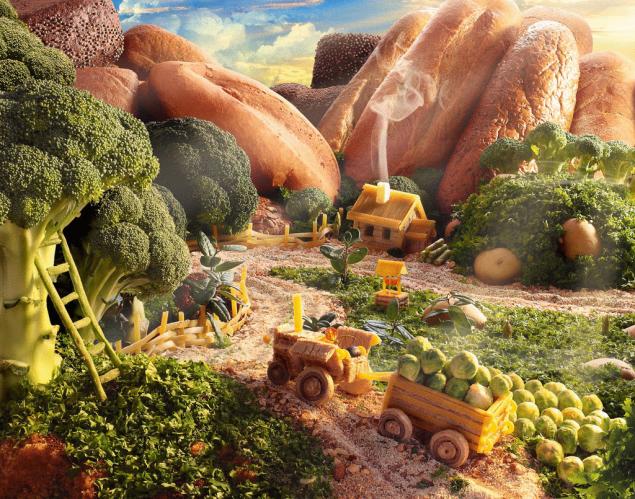
To get certified "organic", local farmers need the services of the European certification bodies, and not everyone can afford them.
So we have two choices: either to make useful contacts with farmers, recheck that their farm was located far from the metropolis, and the roads that he wasn't around factories and landfills. The second way is to look for organic in the stores, thereby increasing the demand for it.
Source: /users/87

In the beginning organic products were considered all that has grown "naturally" — without sprays, fertilizers, animal feed, at the good old manure and sunlight. Do organically grown foods taste rich and vitamins and minerals contains much more.Another required characteristic of organic products, in addition to growing naturally, is seasonality. Strawberries in June, mushrooms in autumn, watermelons and August and not in November.
Organic farms for pest control using biological and physical methods, natural enemies, ultrasound, traps. In the process of growing many operations are performed manually. Manufacturing is complicated by the fact that in natural dyes, and preservatives (e.g. vinegar) is unstable to the temperature and often not give such a stunning effect as their synthetic counterparts. All this ultimately makes a product organic is not cheap, but health is worth it.
Labeling of organic food can carry, not all foods grown in a natural way. "Low level" is the farm's products, in fact, what we buy in the market. But in this case guarantee that the tree is not sprayed against pests with pesticides, and carrots — not the collective farm, fertilized with nitrate fields, no.
In Europe, a "pan-European agreement on organic production of agricultural products" No. 2092/91 of 24 June 1991. To obtain the corresponding certificate in agriculture will need to pass a very serious test: the inspectors are studying everything from soil composition and its proximity to the tracks, to methods of processing and packaging.In our country there are as yet no standards for production and certification of organic products.

To get certified "organic", local farmers need the services of the European certification bodies, and not everyone can afford them.
So we have two choices: either to make useful contacts with farmers, recheck that their farm was located far from the metropolis, and the roads that he wasn't around factories and landfills. The second way is to look for organic in the stores, thereby increasing the demand for it.
Source: /users/87
